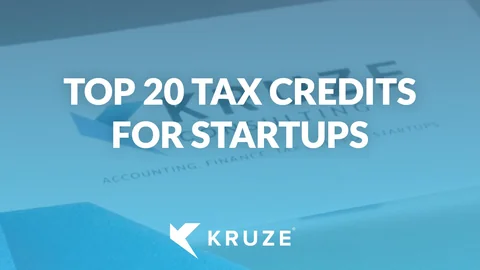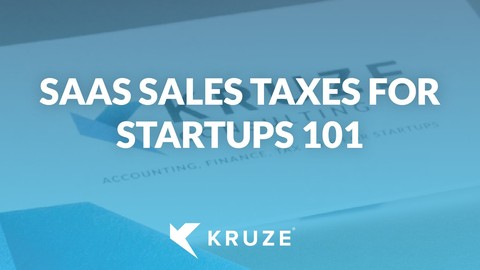
Qualified Startups Can Reduce their Burn - and tax burdens - with the right tax credits
Not every tax credit is available for every early-stage company. Find out which credits make sense for your startup, your employees and your investors.
20 Top Tax Credits for Startups
Most startups can NOT take advantage of these, but here is a long list. We’ll dive into detail below.
- Credit for Small Employer Health Insurance Premiums: Form 8941
- Work Opportunity Tax Credit (WOTC): Form 5884
- Employer Credit for Paid Family and Medical Leave: Form 8994
- Empowerment Zone (EZ) Employment Credit: Form 8844
- Maryland Biotechnology Investment Incentive Tax Credit (BIITC)
- New York State Life Sciences Research and Development Tax Credit Program
- Keystone Innovation Zones Tax Credit (Pennsylvania)
- California R&D Tax Credit
- California Sales Tax Partial Exemption
- Employee Retention Tax Credit for Recovery Startups (ERTC)
- Federal R&D Tax Credit
- Research and Development (R&D) Tax Credit
- Historic Preservation and Rehabilitation Incentives
- Film, Theatrical, and Motion Picture Credits
- Employer-Provided Child Care Credit
- Job Training Incentives
- Renewable Energy Tax Benefits
- Enterprise Zones (EZ)
- Angel and Venture Capital Investment Tax Credits
- 401k Tax Credit: IRS Form 8881, Credit for Small Employer Pension Plan Startup Costs
Kruze’s clients have collectively saved over $100 million in taxes from our startup tax credit work. We regularly review federal, state and local business tax credits, and for the vast majority of VC-backed startups, the R&D Tax Credit is the best, and usually only, material tax credit that improves a VC-backed startup’s burn rate (by up to $500,000).

Executive Summary:
With the exception of the R&D Tax Credit, there are no other material tax credits that are applicable to the typical venture backed startup with less than 100 Full Time Employees.
What defines a typical startup?
Before we dive into whether or not the typical startup is eligible for tax credits, we first need to define what a typical startup is.
First, a typical startup is one that is a venture backed Delaware C-Corporation. Many folks throw around the term “startup” and can sometimes bunch any new company into that term, such as a craft shop on Etsy that was recently launched. But for these purposes, we are referring to a professional venture that is seeking high growth opportunities, most often rooted in technology, biotechnology, software, etc and have likely secured patents. Because venture capitalists can only invest in Delaware startups, we clarify the term “startup” to include this provision.
Second, a typical startup is one that has less than 100 Full Time Employees (FTEs). Despite all the media coverage out there about Google, Facebook, and Apple, these golden startups are the exception, not the rule. According to the Small Business Administration (SBA) there are 29+ million SMBs in the US, representing 99.7+% of all US businesses. And that’s defining an SMB with less than 500 employees. If your startup has more than 100 Full Time Employees (FTEs), congratulations!, you are atypical and for these purposes we do not consider you a startup any more from a tax credit applicability standpoint. Rather, you should be hiring experienced CPAs who are tax experts to help you comb over every tax credit out there and plot out an intricate and well developed tax strategy.
Third, startups that are venture backed and have less than 100 FTEs tend to have some similar spending habits. For example, most startups in this bracket tend to spend 80% of their monthly burn on 3 things: Payroll, Contractors, and Rent. They tend to pay their CEOs an average salary of $130,000 per year. They tend to hire Engineers and pay them salaries of $120,000 per year. They tend to have offices that are in San Francisco, New York City, or Los Angeles, or other major metropolitan areas, and these offices tend to be located in highly trafficked areas that are close to public transportation. In addition, COVID and the 2020 diaspora has showed us that many startups have given up their formal offices and allowed employees to work remotely. Many startup employees have chosen to move to other states. These two pandemic trends make it even more difficult for startups to capture tax credits, which are very often based on office and employee location. All of these startup similarities will come into play when we evaluate tax credits for startups.
Finally, for these purposes, we define a typical startup as US based. Granted there are thousands of startups that are based all around the world doing amazing things, but for this research article we needed to narrow our scope to those that are based in the US, and thus eligible for US opportunities.
Major Tax and Financial Dates for Startups
-
Review key metrics and KPIs
-
Check progress on quarterly goals
-
Begin planning next year’s budget
-
Review compensation and benefits plans
-
Review monthly financial statements
-
Close Q2 books
-
Review cash management strategy and investments
What is the difference between a tax deduction, a tax credit, and a tax incentive?
A tax deduction lowers your taxable income. A tax credit forgives your taxes owed. A tax incentive is designed to spur certain social or economic outcomes within a given territory.
For example, if you had $100K in revenue, and $60K in tax deductions, you would have $40k in taxable income. Assuming a 21% tax rate, your startup would owe $40K * 21% = $8,400 in taxes. The business meal deduction is one type of tax deduction that many people are familiar with.
A tax credit forgives your taxes owed. For example, if you had $100K in revenue, and $60K in tax deductions, you would have $40k in taxable income. Assuming a 21% tax rate, your startup would owe $40K * 21% = $8,400 in taxes. If you had a $5,000 tax credit, you would only owe $3,400 in taxes. Clearly, tax credits are more advantageous than tax deductions.
A tax incentive is designed to spur certain social or economic outcomes within a given territory. For example, the Work Opportunity Tax Credit is designed to encourage employers to hire people from less represented groups, such as veterans or ex-convicts.
| Tax Deduction | Tax Credit | Tax Incentive | |
|---|---|---|---|
| Company need to have positive income | Yes | Sometimes | Sometimes |
| Reduces taxable income | Yes | Unlikely | Sometimes |
| Directly reduces a tax owed | Indirect | Direct | Sometimes |
How can you characterize the 1000+ tax credits and incentives?
Despite the myriad of tax credits out there that are available on the Federal, State and Local levels, there are some common themes amongst those credits offered. Here are the most prevalent credits offered:
- Historic Preservation & Rehabilitation: credits that are offered to businesses that purchase and rehabilitate historic buildings and/or landmarks.
- Film, Theatrical, & Motion Picture: credits that are available to film/theater businesses that produce content within a certain city or state.
- Child & Dependent Care: credits available to employers that provide on site day care facilities or programs for dependent care.
- Job Training: credits available to businesses that specifically function to train people in trades such as manufacturing, welding, law enforcement, etc and/or training new or existing employees, in accordance with an approved training plan.
- Renewable Energy: credits for businesses that are either engaged in renewable energy products & services and/or offer green energy options for their employees, such as electric vehicles.
- Coal & Gas: credits for businesses in the coal & gas industries.
- Enterprise Zone: credits for businesses that have offices in designated developing neighborhoods.
- Angel/ VC Investment Credits: credits for investors (angel & VC) who invest in technology companies.
- Research & Technology: credits for businesses that engage in R&D within the technology sector.
Which tax credits should my startup be paying attention to?
We’ve narrowed down the list to the ones that are most frequently asked about. Unfortunately, its extremely rare that a startup qualifies for any of these, other than the R&D tax credit and the Employee Retention Credit (ERTC):
- Credit for Small Employer Health Insurance Premiums: Form 8941
- Work Opportunity Tax Credit (WOTC): Form 5884
- Employer Credit for Paid Family and Medical Leave: Form 8994
- Empowerment Zone (EZ) Employment Credit: Form 8844
- Maryland Biotechnology Investment Incentive Tax Credit (BIITC)
- New York State Life Sciences Research and Development Tax Credit Program
- Keystone Innovation Zones Tax Credit (Pennsylvania)
- California R&D Tax Credit
- California Sales Tax Partial Exemption
- Employee Retention Tax Credit for Recovery Startups (read more below)
- Federal R&D Tax Credit
Employee Retention Tax Credit for Recovery Startups
Startups founded after February 15, 2021, may be able to claim a special tax credit - the Employee Retention Tax Credit (ERC or ERTC). This credit was authorized under the American Rescue Plan act of 2021, and provides payroll tax credits for startups founded during COVID. Read here for more detail on recovery startups and the Employee Retention Tax Credit.
Recovery startups may be able to reduce their payroll taxes by up to $100,000 - $50,000 per quarter for two quarters. Many of our clients, who have a high level of engineering payroll spend, will be able to claim this credit.
With new tax credits coming out every month, how can I be assured that my startup isn’t eligible?
There are several paid and free databases that track and update tax credit opportunities; it’s easy enough for us, as tax CPAs, to know when there are new credits. Additionally, because Kruze has access to your financial information, payroll records, tax information, and several other data points, we are able to monitor any new opportunities that your startup may be eligible for and alert you to those possibilities that would be both material in amount and worthwhile in time and effort. Kruze has hundreds of clients, and has probably reviewed most tax programs for one or more clients. Tax benefits that Kruze has evaluated include:
Credit For Small Employer Health Insurance Premiums: A Brief Overview
The IRS offers the Credit for Small Employer Health Insurance Premiums, primarily targeted at smaller startups. However, venture-backed startups often don’t qualify due to salary stipulations - you can only pay your employees an average of BELOW $50,000 per year. Way under what most US-based startup employees make. You can learn about the Credit for Small Employer Health Insurance Premiums: Form 8941.
Key Points:
Purpose: This federal tax credit supports startups with fewer than 25 employees that provide health insurance, provided the average salary is below $50,000 per employee.
Eligibility:
Startups must:
- Utilize the Small Business Health Options Program (SHOP) Marketplace.
- Pay over 50% of health insurance costs.
- Have less than 25 full-time employees.
- Ensure average annual wages are under $50,000 per FTE.
Credit Amount: Businesses can claim up to 50% of health insurance premiums paid against both regular and alternative minimum tax. For tax-exempt employers, the cap is 35%.
Claiming: To apply, startups need to submit forms 8941 and 3800 as part of their 1120 C-Corporation Income Tax Return. Deadlines are 4/15 annually but can be extended to 10/15.
Further Information: The IRS’sForm 8941 section provides comprehensive details about this credit.
Note: Despite the potential benefits, none of the 500+ startups surveyed in 2020 qualified for this credit, underscoring its limited applicability for venture-backed entities.
401(k) Startup Tax Credit
The SECURE Act of 2019 introduced tax credits for small businesses establishing 401(k) plans. While it sounds promising, not all startups, especially those not yet profitable, can capitalize on this. You can read our write up on the 401(k) startup tax credit here.
Key Points:
Applicability: The credits are designed for income-generating small businesses setting up retirement plans. VC-backed startups without profits might not benefit.
Eligibility: 1. Must have 100 or fewer employees earning at least $5,000 last year. 2. Cover at least one non-Highly Compensated Employee (HCE). 3. New retirement plan, not a replacement.
Credit Value: Credits can be up to $5,000 annually for three years, potentially reaching $16,500 if additional features like automatic enrollment are added.
Claiming: Use IRS Form 8881 with annual tax returns.
Unprofitable startups might find the R&D tax credit more relevant. Ensure you understand your eligibility before proceeding - read more here.
Know Your Tax Credits
The federal, state and local governments have created various incentives for new businesses, jobs and investments. These are generally offered in the form of tax credits. Even unprofitable startups can often receive tax credits that reduce their burn rate!
HOW TO CLAIM TAX CREDITS
Most tax credits for early-stage businesses are filed on or in conjunction with the business’ annual tax filings. For the federal Delaware C-Corps, this filing is called the Federal Form 1120 - the U.S. Corporation Income Tax Return. This is the filing that the IRS has companies use to report their income, losses, credits, etc. and to figure the income tax liability of the corporation. Many of the credits will be filed alongside of Form 1120, or worksheets will be used to create the numbers that help complete the 1120.
WHY WORK WITH A CPA?
Kruze is a CPA firm that works with VC-backed startups. Our clients expect to go public or be acquired by major, public technology corporations for hundreds of millions or billions of dollars. Raising funding from professional investors; getting acquired by public companies; going public - all of these activities will force a startup to endure serious financial due diligence. Kruze is laser-focused on creating bullet proof tax returns and financial statements to help our founders be ready. We are experts on accounting for tax credits!
Secondly, and even more important for more traditional small businesses, is that the IRS prefers credentialed tax experts prepare your tax return. Keep in mind that if you are claiming tax credits, you are taking money from the Treasury, so you meaningfully increase the risk of an audit. A CPA who is experienced in your particular industry can help shepherd you through the audit process, and the longer that CPA works with you the better they’ll be able to service you.
WHAT TO AVOID WHEN CLAIMING TAX CREDITS
We strongly advise companies to know who will be preparing their tax return, and to watch out for services that do not have a named CPA involved in the process. In fact, the IRS warns tax filers about “ghost preparers!” And if you are going through intense due diligence, you are going to want to know WHO that CPA is so that they can assist you!
THE BIGGEST TAX CREDIT FOR MOST STARTUPS
The biggest tax credit available to the VC backed startups that we work with is the R&D Tax Credit. This credit is an offset against payroll taxes, and helps early-stage companies involved in research and development decrease their payroll taxes. And since any company in the US that has US based payroll pays payroll taxes, this credit can help unprofitable, money burning companies reduce their cash burn! The IRS has issued new filing requirements for the R&D tax credit, and startups will need to report very specific and detailed information to substantiate their R&D claims. Not taking advantage of this program is one of the biggest tax mistakes startups can make.
The Most Common Tax Credits for Startups
Everyone loves getting tax offsets or credits from the government as it means your startup gets to keep more of your money. We thought it would be helpful to go through the most prevalent tax credits for startups out there.
Tax credits can be applied in a wide range of circumstances, so here’s a compilation of tax credits that might apply to your startup:
1. Research and Development Tax Credit
The research and development (R&D) tax credit is intended to encourage companies to invest in next-generation technology that will provide strong economic and employment benefits, and create new and exciting industries. The R&D tax credit was changed beginning in 2022 so that companies now have to amortize their domestic R&D expenses over five years, rather than immediately deducting them (overseas R&D must be amortized over 15 years).
2. Historic Preservation and Rehabilitation Incentives
Historic preservation and rehabilitation is a tax credit you will get if you buy an older building and renovate it. There will inevitably be zoning laws and special considerations here but, broadly speaking, that is what the historic preservation and rehabilitation tax credit is for.
3. Film, Theatrical, and Motion Picture Credits
Next up are film, theatrical, and motion picture tax credits. You see these a lot with different states or countries giving tax credits to the film industry. For example, right now, Georgia is a place where a there are a lot of film productions happening because the tax credit incentives are really, really friendly to the industry. This is a way for cities, states, or countries to attract more business, which makes this a very popular tax credit forentertainment industry, since these productions can be pretty expensive. .
4. Employer-Provided Child Care Credit
Child and dependent care tax credits are tax credits available to employers who make childcare available either onsite or through some type of reimbursement program.
5. Job Training Incentives
Job training tax incentives are very popular as they are basically designed to encourage individuals, companies, or even states to invest in job training. Employers can deduct certain qualified education and training expenses. Generally only education expenses which improve workers’ skills for their current training are deductible.
6. Renewable Energy Tax Benefits
Renewable energy is a really big one. As we just saw with the Inflation Reduction Act, there are tax credits for energy and clean technology. For example, there’s federal solar tax credit for businesses and small businesses can receive a tax credit covering up to 30% of the cost to switch to solar power. Here at Kruze, we know a lot of clean tech companies that are taking advantage of tax incentives right now and it is very exciting.
You will also still see tax credits for coal and gas because, although it is an older industry, it is still very important to the world’s energy security, especially the U.S.
7. Enterprise Zones
Enterprise zone (EZ) subsidies encourage businesses to stay, locate, or expand in designated geographic areas. These are typically depressed areas that need stimulus. Most states have enterprise zones, and each state’s EZ program is slightly different. Often these credits will come from a federal program that then interacts with state and city governments. Common EZ subsides can include things like investment tax credits; property tax abatements; job creation tax credits; sales, franchise, and use tax exemptions or reductions; or a range of other subsidies.
8. Angel and Venture Capital Investment Tax Credits
This is very popular for angel and venture capital investors. What we are really talking about here are QSBS - qualified small business stock exemption. Stockholders can claim a federal income tax exclusion when they sell QSBS that’s been held for more than five years.
With this credit many investors can actually offset or not have to pay capital gains on their gains at all, IF the startup fits the very detailed criteria. QSBS was designed to encourage startup investment by creating a power tax savings.
Check with your startup accountant
So there are an abundance of tax benefits and incentives that could apply to your startup. These can be very helpful to early-stage companies, helping you save on taxes and extend your venture capital. Many of these have specific requirements and documentation, so you’ll want to talk to an experienced startup accountant about them. If you have any questions on tax credits (like the R&D tax credit), startup accounting, or venture capital please contact us. And follow our YouTube channel and our blog for information on accounting, finance, HR, and tax for startups!
How is Kruze different?
Kruze Consulting is 100% focused on helping seed and venture funded businesses, and one of our key services high quality tax return and advice that reduces our clients’s burn rates - and helps them be ready to ace due diligence if they are acuired or raise large amouts of VC funding.
Companies that have raised capital from professional investors require a specialized level of advice and hel that you can’t get from an automated service or run of the mill CPA. Our integrated CFO, bookkeeping and accounting teams can help your company be ready for the strategic situations that make running a startup special.
Investor updates, board meetings, being prepared for that next venture round or the unexpected M&A interest - we know what the top venture capitalists and public company M&A teams what to see, and make sure financials and return/filings are ready.
Get the credits your startup deserves!















